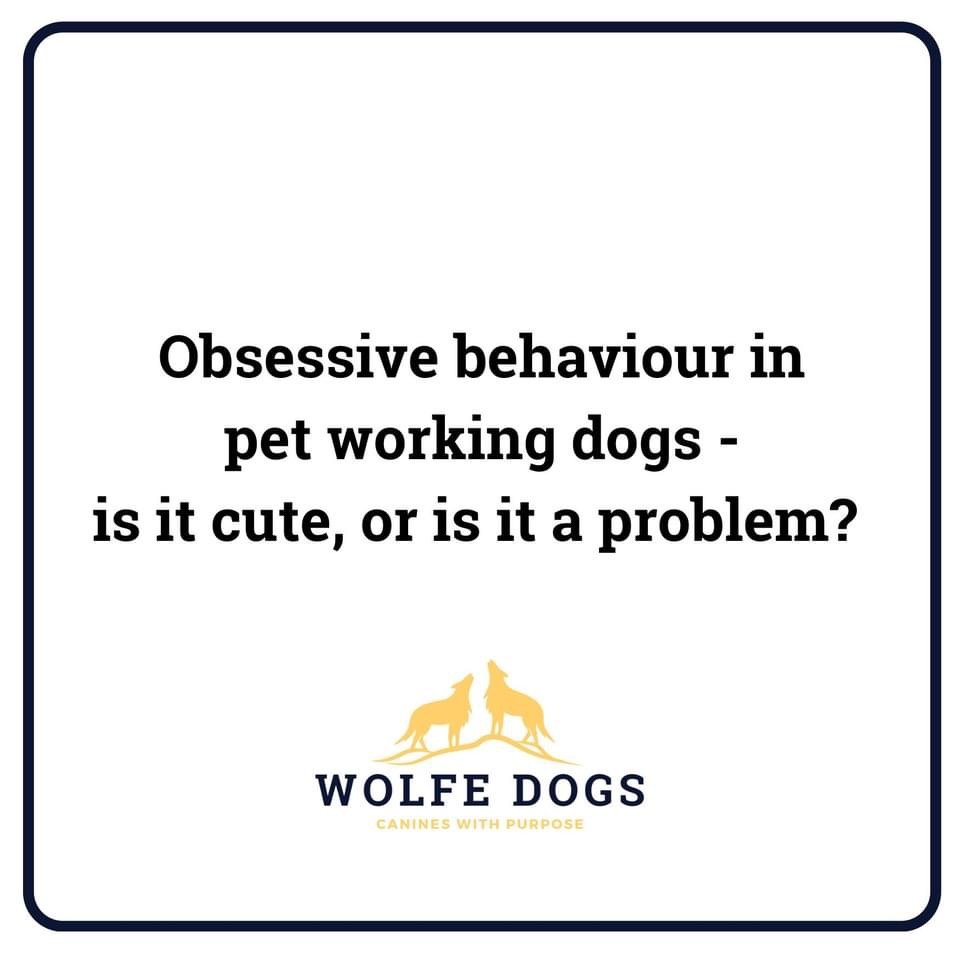Obsessive behaviour in pet working dogs
In pet working dogs, it’s really common to see quirky obsessions develop. Whether that’s a fixation on shadows and light, obsessing over sticks or balls etc, circling the property, barking repeatedly at “nothing”, or compulsive spinning in a kennel - often it gets written off as a weird or cute but harmless thing.
In a lot of cases though, this is a symptom of some pretty stressed out dogs who have developed these behaviours to cope - typically due to under stimulation (boredom) or over stimulation (I don’t know what to do in this situation so I’ll direct my energy into this thing here). They get stuck in this pattern of unhealthy behaviour, finding it tough to move on to other stuff or settle in general. Overall, not a healthy state of mind to be in and can become a real problem when trying to enjoy life with our dogs.
So what do we do to prevent it or stop it?
🌟 Make sure your dog is actually getting the fulfilment they need. When you have a working type dog, providing them with suitable work needs to be a priority no matter how busy your life is - it’s the responsibility you’ve signed up for when you brought that dog into your life. Whether this is training, adventure walks, tug games, nose work or other dog sports, give your dog a job so they don’t need to go looking for things to fill that void.
🌟 Supervision. A working dog left to their own devices easily finds these little patterns, and it can quickly dissolve into an obsession if practiced. If your dog is out, keep an eye on them so you can interrupt problem behaviours before they become a well rehearsed issue and redirect to something more appropriate. You may like to leave a short rope attached to the dog to make interrupting this stuff easier.
🌟 Don’t encourage games that can’t be won. A common one is dogs getting obsessed with light (laser pointers, reflections in the house) and shadow chasing. People think it’s really funny that the dog is chasing this stuff, but can create issues in that the dog can never catch it and win! Don’t allow this sort of game, and instead opt for games with actual toys and clear start and finish signals. When the end cue is given, the game is over.
🌟 Make sure everyone is on the same page about what is/isn’t healthy. I often see this sort of obsessive behaviour developing in the likes of daycares, where dogs are often over stimulated, and lacking appropriate supervision or education around what’s okay. Make sure your care provider is aware of these sorts of issues, is switched on when it comes to interrupting them and isn’t encouraging problematic obsessions.
🌟 Practice calmness. Dogs need to learn to settle and do nothing, rather than constantly looking for something to do (provided they are actually getting their needs fulfilled in the day). Down stay, place bed/mat work, crate time. The stop is as important as the go!

